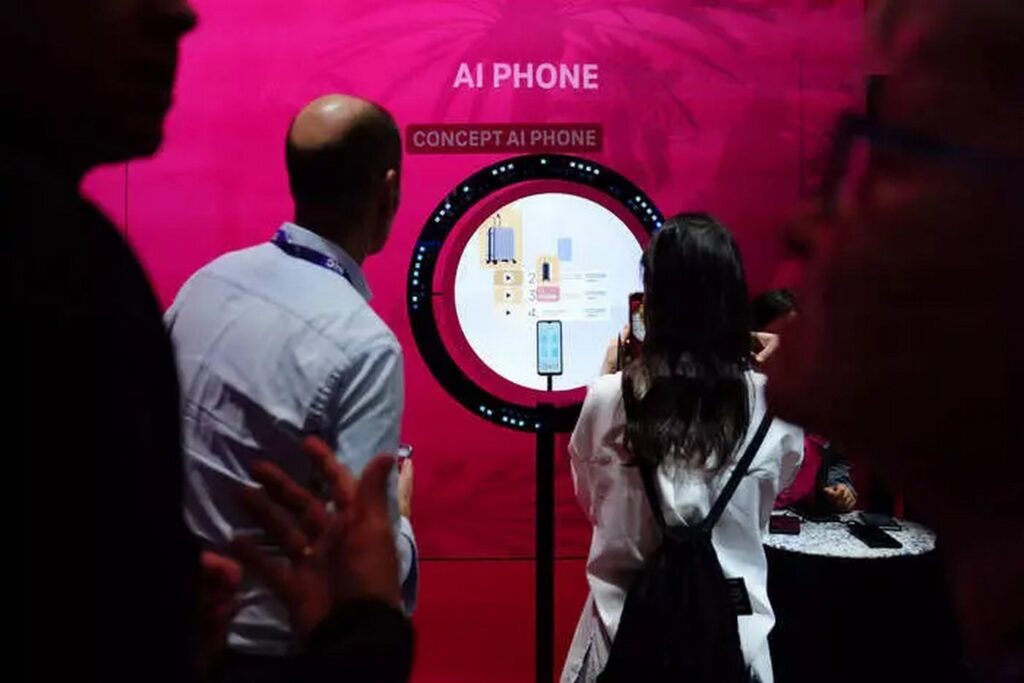The Rise of AI in Smartphones: A Shift from Apps

At the Mobile World Congress 2024, the pervasive theme revolves around “artificial intelligence,” indicating a significant shift in smartphone technology. Amidst the buzz of keynotes and roundtable discussions, it’s evident that AI is poised to revolutionize smartphones, with various companies and chipmakers showcasing AI integration into mobile devices.
Localized AI Integration
While existing AI applications like ChatGPT and Google’s Gemini chatbot rely on internet connectivity for processing, the focus now shifts towards integrating AI tools directly into smartphones. This move aims to enhance device performance by running large language models (LLMs) locally, thereby reducing reliance on remote servers and minimizing data transmission to external sources.
Cost Considerations and Industry Response
However, implementing AI locally comes with its challenges, particularly regarding cost. Running LLMs incurs significant expenses, prompting companies like Qualcomm to develop solutions that optimize AI processing on mobile chips. By collaborating with phone manufacturers such as Samsung and Honor, Qualcomm aims to empower devices with efficient AI capabilities while managing costs effectively.

Showcasing AI Capabilities
At the Mobile World Congress, leading smartphone manufacturers like Samsung and Xiaomi unveiled AI-driven features designed to elevate user experience. From real-time translation tools to advanced video-editing functionalities, these innovations signify a strategic shift towards leveraging AI to differentiate products in a competitive market.
The Future of AI-Powered Smartphones
The resurgence of AI in smartphones comes at a critical juncture for the industry, which has witnessed a slowdown in sales and prolonged device upgrade cycles. As device makers explore personalized AI assistants and intuitive interfaces, the vision of smartphones evolving into intelligent personal concierges seems closer than ever.
Towards App-less Interfaces
Some forward-thinking companies are even envisioning a future where traditional apps are replaced by AI-driven interfaces. By integrating AI assistants capable of executing tasks based on user commands, these concepts aim to streamline user interaction and optimize device functionality.
Conclusion: Embracing AI Integration
As the smartphone landscape evolves, AI integration emerges as a transformative force reshaping user experiences and industry dynamics. By harnessing the power of localized AI, device makers are poised to usher in a new era where smartphones transcend their traditional role, becoming intuitive companions tailored to individual preferences and needs.
















